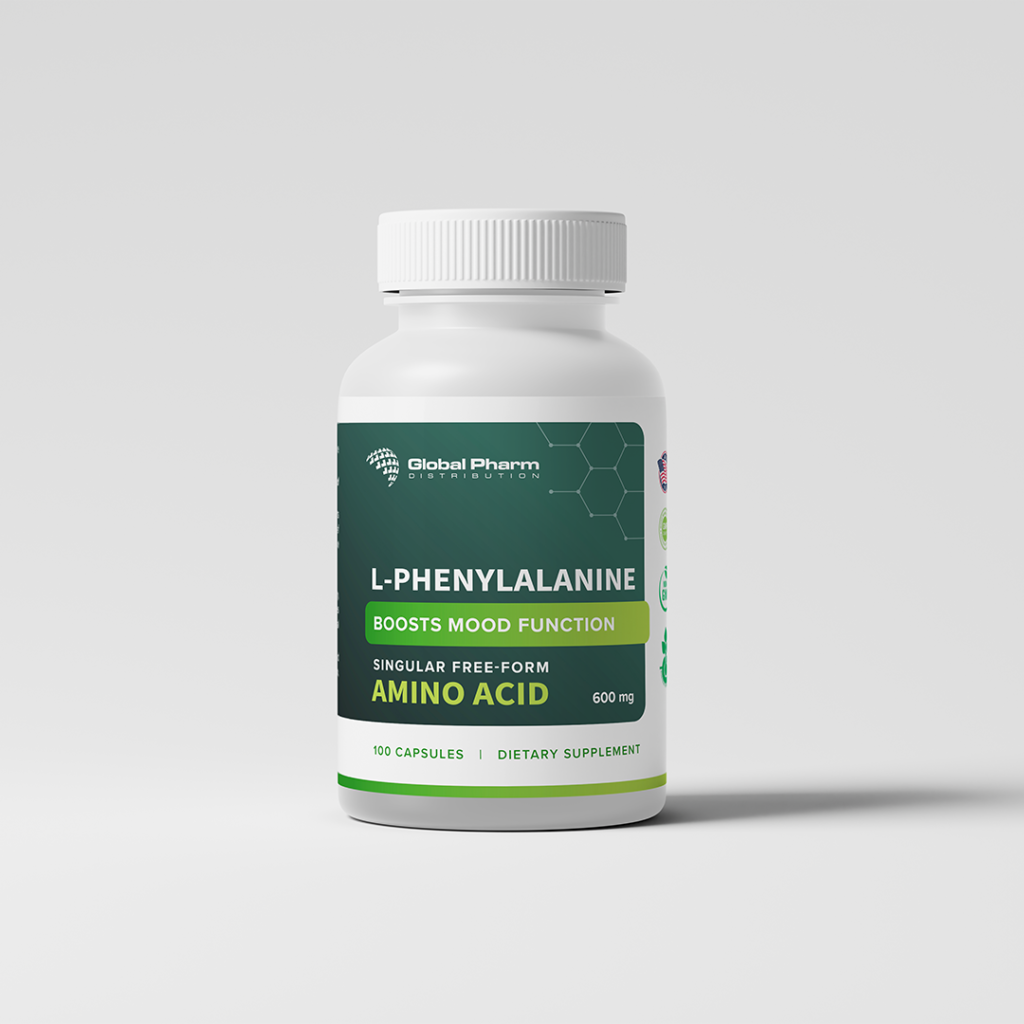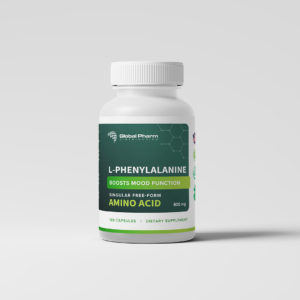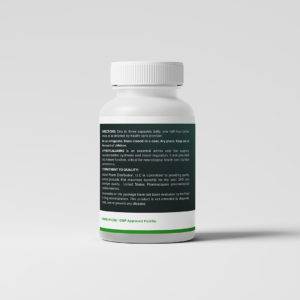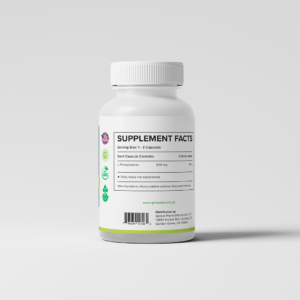Description
NDC: 53335-085-14 (capsule), 53335-084-29 (powder)
Weight: 4 Oz
L-Phenylalanine is an essential amino acid critical for various physiological processes, serving as a precursor to tyrosine, which supports neurological health and thyroid function. It elevates catecholamine neurotransmitters (e.g., dopamine, norepinephrine), which are often deficient in depression, and may benefit neurological conditions like multiple sclerosis (MS) and Parkinson’s disease. L-Phenylalanine also influences appetite, potentially suppressing it for obesity control or increasing it in anorexic individuals by modulating deficient neurotransmitters. Research highlights its role in neurotransmitter synthesis and mood regulation (e.g., Wurtman et al. 1981).
L-Phenylalanine is particularly beneficial for individuals seeking to enhance mood, support neurological function, or address appetite imbalances under metabolic stress. Manufactured using premium pharmaceutical-grade materials in a GMP-approved facility in the USA, L-Phenylalanine is free of fillers, binders, or coloring agents, with no known side effects when used as directed.
Directions: Take 1-3 capsules daily or as advised by your healthcare provider. Pair with vitamins and minerals; GPD’s MVM (Multivitamin) is recommended. Powder equivalent: 1/4 level teaspoon per capsule.
Key Benefits
- Supports Neurological Health: Precursor to tyrosine and catecholamines.
- Enhances Mood Regulation: Addresses neurotransmitter deficiencies.
- Promotes Thyroid Function: Supports tyrosine synthesis.
References
- Wurtman RJ, et al. (1981). “Effects of oral administration of tyrosine and phenylalanine on plasma precursor levels.” Journal of Clinical Investigation, NIH.
- Fernstrom JD, et al. (1979). “Brain serotonin content: Physiological regulation by plasma neutral amino acids.” Science, NIH.
- Pardridge WM. (1998). “Blood-brain barrier transport of nutrients.” Journal of Neurochemistry, NIH.
- Lajtha A, et al. (2001). “Amino acid neurotransmitters in the brain.” Neurochemical Research, NIH.
These statements have not been evaluated by the Food and Drug Administration. This product is not intended to diagnose, treat, cure, or prevent any disease. Consult a doctor or medical professional before use, especially if you have underlying health conditions or are taking other medications.
Additional Information The following points provide insight into L-Phenylalanine’s plasma levels and their association with various health conditions, reflecting its role in metabolism:
- Normal Range: 40-120 µmol/L (approximate clinical range).
- Conditions Associated with Low Levels:
- Phenylketonuria (PKU, genetic disorder impairing phenylalanine metabolism)
- Malnutrition (due to inadequate protein intake)
- Chronic stress or depression (increased neurotransmitter demand)
- Conditions Associated with High Levels:
- Excessive supplementation (from overdosage or dietary excess)
- Untreated PKU (accumulation due to enzyme deficiency)
- Liver dysfunction (impaired metabolism)
Notes: L-Phenylalanine is an essential amino acid that supports tyrosine production for thyroid function and catecholamine synthesis, potentially benefiting mood and neurological conditions like MS and Parkinson’s. It may modulate appetite, aiding obesity or anorexia. Low levels may indicate metabolic disorders or nutritional deficits, while high levels are often linked to PKU or supplementation. These associations are correlative and require further research for causal confirmation. For more technical information, please click here. Consult a doctor or medical professional before use, especially if you have underlying health conditions or are taking other medications.
 Global Pharm Distribution, LLC
Global Pharm Distribution, LLC




